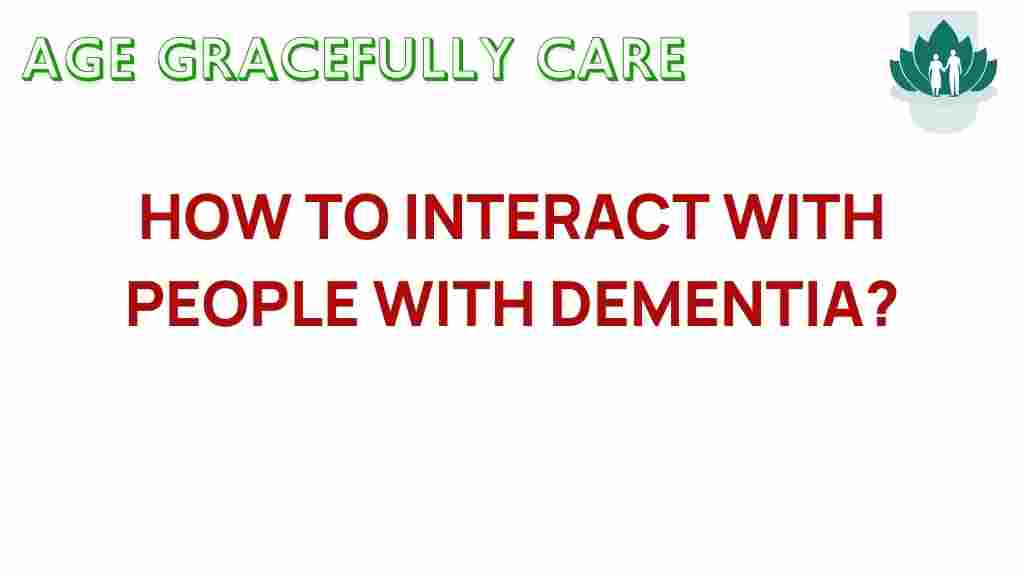Engaging with Dementia: Effective Strategies for Meaningful Connections
Dementia is a challenging condition that affects millions of individuals and their families worldwide. As caregivers, understanding how to communicate effectively with those living with dementia is crucial for fostering meaningful connections. This article explores effective strategies to enhance communication and patient interaction, emphasizing empathy and understanding. By utilizing these strategies, caregivers can improve the quality of life for individuals with dementia.
Understanding Dementia and Its Impact on Communication
Dementia is not a single disease but a general term that encompasses various cognitive impairments, including Alzheimer’s disease. These conditions can severely affect communication abilities, leading to frustration for both patients and caregivers. Understanding the nuances of dementia can help caregivers develop effective strategies to engage with their loved ones.
The Stages of Dementia
It is important to recognize that dementia progresses through various stages, each affecting communication differently:
- Early Stage: Individuals may experience mild memory loss and difficulty finding words. They can still communicate effectively but may need patience.
- Middle Stage: Communication becomes more challenging. Individuals may struggle to follow conversations or forget recent events.
- Late Stage: Communication may be limited to non-verbal cues or simple phrases. Caregivers need to rely on empathy and understanding during interactions.
Effective Strategies for Meaningful Connections
Connecting with a loved one with dementia requires tailored strategies that facilitate effective communication. Here are some practical approaches:
1. Use Simple Language
When communicating with someone who has dementia, use simple words and short sentences. Avoid complex phrases that may confuse the individual. For example:
- Instead of saying, “Would you like to join us for lunch today?” say, “It’s time for lunch. Let’s eat.”
- Use a calm and clear tone to convey your message.
2. Maintain Eye Contact
Establishing eye contact is crucial in making the individual feel acknowledged and respected. It helps to build trust and shows that you are engaged in the conversation. Lean in slightly to show your interest.
3. Use Non-Verbal Communication
Non-verbal cues, such as gestures, facial expressions, and body language, play a significant role in communication. Here are some tips for effective non-verbal communication:
- Smile warmly to convey friendliness.
- Use hand gestures to emphasize your message.
- Be aware of your body language; open and relaxed posture encourages comfort.
4. Be Patient and Allow Time for Response
Individuals with dementia may take longer to process information and respond. Allow ample time for them to think and answer. Avoid interrupting or finishing their sentences, as this can lead to frustration.
5. Engage in Reminiscence Therapy
Reminiscence therapy involves discussing past experiences and memories. This strategy can stimulate conversation and help individuals with dementia recall joyful moments. Here’s how to implement it:
- Use old photographs or familiar objects to trigger memories.
- Ask open-ended questions like, “What was your favorite holiday?”
- Encourage storytelling by showing genuine interest.
6. Create a Calm Environment
A calm and familiar environment can significantly enhance communication. Minimize distractions such as loud noises or clutter. Ensure the setting is comfortable and inviting.
Troubleshooting Communication Challenges
Despite implementing effective strategies, caregivers may encounter communication challenges. Here are some tips to troubleshoot these issues:
1. When the Individual is Upset
If the person with dementia becomes agitated or upset, remain calm and use soothing language. Validate their feelings by saying, “I can see that you are upset. Let’s take a moment.”
2. If They Don’t Understand
Should the individual struggle to understand, rephrase your question or statement using simpler language. Avoid showing frustration, as this can heighten anxiety.
3. When They Forget Your Name
If a loved one forgets your name or relationship, gently remind them. Use phrases like, “I’m your daughter, remember? I’m here to help you.”
4. If They Become Silent
Silence can be a common occurrence. Encourage conversation by asking about their interests or feelings without pressuring them to respond.
Building Empathy and Understanding
Empathy is a powerful tool in caregiving. By placing yourself in the shoes of the individual with dementia, you can better understand their emotions and behaviors. Here are some ways to cultivate empathy:
- Listen Actively: Show genuine interest in what they have to say, even if it seems disjointed.
- Educate Yourself: Learn about dementia and its effects on communication and behavior.
- Practice Patience: Understand that frustration and confusion are part of the condition.
Conclusion
Engaging with dementia requires tailored communication strategies that foster connection and understanding. By utilizing simple language, non-verbal cues, and empathy, caregivers can create meaningful interactions with individuals living with dementia. Remember, patience is key, and every small connection can significantly enhance the quality of life for both the caregiver and the individual. For more resources on dementia caregiving, you can visit this helpful guide.
Incorporating these strategies into your caregiving routine can lead to more fulfilling relationships and improved interactions. Caregiving is a journey that requires continuous learning and adaptation, but the rewards of meaningful connections are invaluable.
This article is in the category Care and created by AgeGracefullyCare Team
